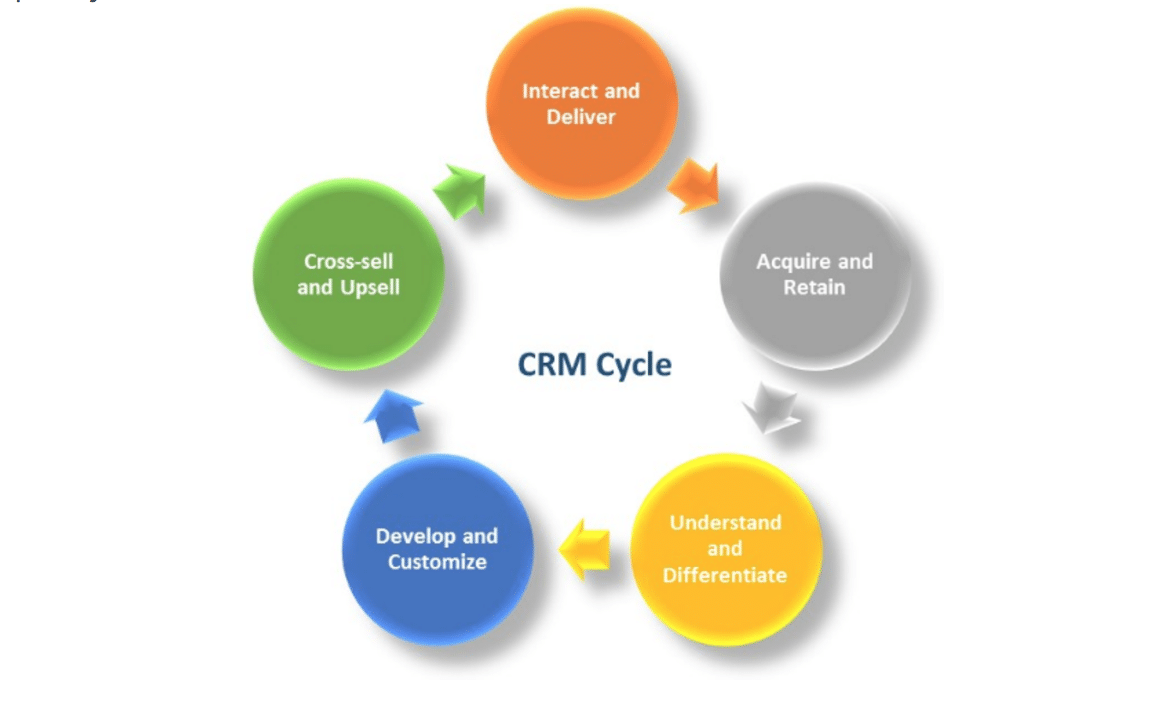5 Ways to Increase Revenue With CRM Software
Five Ways You Can Drive Revenue From Your CRM
Customer relationships form the heart of every successful business. Companies grow and thrive by developing strong, meaningful relationships with their customers and using that rapport to cut through the noise of an overcrowded, overstimulated market.
Whether you work in a B2B or B2C industry, modern customers want to be treated like the unique individuals they are. Unfortunately, establishing and maintaining customer relationships presents a challenge that many organizations struggle to overcome.
Customer Relationship Management (CRM) technology changes all that. This integrated solution lets businesses manage their complex relationships with customers and leads so their sales teams can focus on selling.
Although traditional CRM systems were designed primarily to manage sales leads and store customer data, the technology has since evolved. Today’s solutions track interactions with customers, analyze data and consumer sentiment, and use artificial intelligence to deliver insights that help companies create personalized experiences for their valued patrons. These modern systems also integrate and automate processes to streamline vital business functions.
While the organizational and customer experience benefits of CRM are undeniable, many businesses are left wondering if investing in CRM can drive revenue. The answer is a resounding yes.
How to Drive Revenue From Your CRM
1. Upselling and Cross-Selling
Businesses can increase their revenue by raising each customer’s average purchase value, which can be accomplished by either upselling or cross-selling. Upselling, the practice of pitching a customer a higher-cost item or an add-on such as a warranty, has become synonymous with wasted money to many consumers. With CRM, that doesn’t have to be the case.
An effective CRM system can help employees upsell and cross-sell by generating related and recommended products and services based on a customer’s prior purchase history and other relevant data.
Using CRM-based data analysis, companies should begin to look at upselling and cross-selling less as sales tools and more as ways to enhance customer satisfaction. You can essentially provide customized recommendations that fulfill a genuine need by identifying a customer’s requirements before they’ve done so themselves. This can lead to the opportunity to build a deeper relationship and engender loyalty, in addition to driving revenue.
CRM can be effective for post-sale cross-selling by identifying relevant products and services as they become available. The data collected in your CRM system can also be used to identify happy customers and enable upsells related to success milestones such as sign-up anniversaries, number of log-ins, and accomplishing specified tasks. By communicating with customers at certain milestones, you increase your chances of reaching them at a time when the value of your product or service is easily seen, and they may be more open to a purchase as a result.
2. Communicating Regularly and Meaningfully
Most businesses agree that selling to repeat customers is easier and less costly than winning new business, but maintaining relationships with customers requires communication. In fact, regular correspondence with customers can lead to increased purchasing frequency and better customer retention. This is particularly true if the communications are personalized, relevant and meaningful.
Without CRM, it’s easy for a customer to get lost or forgotten, but companies with CRM can collect and analyze patrons’ details to help deliver marketing communications that are tailored to each individual customer. For service industries or industries selling big-ticket items, CRM technology can also simplify the transfer of customers from one salesperson or department to another without starting the process from scratch. Ultimately, personalized communications make a customer feel valued, cementing loyalty and increasing the odds of repeat sales.
3. Increasing Employee Productivity
One of the main benefits of a CRM solution is that it can integrate multiple processes into a single system. From reducing training time to promoting job efficiency, that can mean a substantial increase in employee productivity across numerous departments.
CRMs can eliminate time-consuming redundancies where multiple employees engage in the same task. These systems can also facilitate communication between departments, minimizing wasteful phone calls and creating a more seamless process for customers who may be waiting on answers or information.
Increasing employee productivity is especially important for sales representatives who historically have spent only a small portion of their on-the-job time actually selling. Prior to CRM, their workdays were taken up by administrative tasks, such as data entry, qualifying leads, and cost-benefit analysis, leaving little time for customers. CRM handles or streamlines many of these processes, leaving sales reps with more time to spend with customers, forming relationships, and selling products to ultimately drive revenue.
4. Targeted Marketing for New Customers
CRM doesn’t just manage existing customers. Customer relationship technology is designed to manage sales leads as well.
By letting companies filter their leads by interests and demographics such as life stage, CRM facilitates targeted marketing to potential customers. This lets businesses direct their marketing efforts to relevant populations, increasing the odds of winning new customers. Plus, by integrating mobile and social platforms, companies can reach customers who may not have considered shopping with them, potentially enticing them to consider new products or services.
5. Automating Processes
Using advanced AI technology, CRMs are taking over an array of business functions for a better customer experience. Chatbots and customer self-service options prompt quicker problem resolutions for enhanced client satisfaction. More satisfied customers can lead not only to repeat purchases, but to referrals and good reviews, which can drive revenue for businesses that rely heavily on word of mouth.
Plus, by automating processes such as onboarding and billing, particularly those that happen post-sale, your CRM can improve the time to revenue once the contract is signed. That means money in the bank sooner and more cash flow is available.
How to Incorporate CRM Into Your Business
By driving revenue in a multitude of ways, CRM provides a rapid ROI that makes it a worthwhile technology for most companies to implement. However, not all CRM systems are created equal. If you’re thinking of incorporating CRM into your business, it’s important to purchase a system that’s tailored to your specific business processes to most effectively drive revenue.
Incorporating CRM can change the way your business functions, so it’s important to consult with professionals to make sure you get the system that’s right for you.
Some things you’ll want to consider are:
- Cost
- Security and maintenance
- Ability to upgrade
- Ease of mobility
- Disaster recovery
Most importantly, make sure to partner with a trustworthy vendor who considers your business success a priority. It can make all the difference when it comes to driving revenue and making sure your customers keep coming back. Contact us online or give us a call to learn more about how SugarCRM can help you drive revenue.



